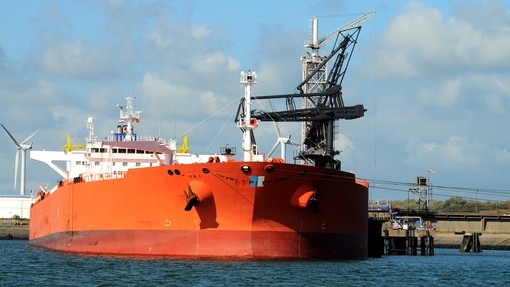Block exemption for liner shipping consortia expires and will not be renewed

Block exemption for liner shipping consortia expires and will not be renewed
Block exemption for liner shipping consortia expires and will not be renewed
In October 2023, the EU Commission announced its decision to let the Consortia Block Exemption Regulation (CBER) for liner shipping expire on 25 April 2024, without renewing it for a further five years as it has done twice in the past.
How, and to what extent, will the expiry of the CBER impact liner shipping’s pooling arrangements? We consider this development in the regulatory and industry context.
Consortia Block Exemption Regulation (CBER)
Liner shipping services are the provision of regular, scheduled non-bulk maritime cargo transport (mostly in containers) on a specific route. As these services demand considerable levels of investment, groups of shipping companies will often cooperate to operate the services jointly on the basis of agreements known as “consortia”. This allows the carriers to operate the services more economically and to use the space on vessels more efficiently.
A consortium usually involves its members contributing to a common fund according to the number and size of ships they bring into the consortium. Expenses are shared and revenue distributed according to each shipping company’s contribution.
Article 101(1) of the Treaty on the functioning of the European Union (TFEU) prohibits certain agreements and anti-competitive practices that might affect trade between member states. However, pursuant to Article 101(3) TFEU and the CBER, the EU can exempt liner consortia from the prohibition in Article 101(1) TFEU in certain circumstances.
The CBER was adopted in 2009 and exempts consortia from the prohibition of Article 101(1) provided certain conditions are met, including that the market share of consortia may not exceed 30%.
Article 101(3) TFEU and the CBER permitted the EU Commission to exempt liner consortia from the prohibition for a maximum of five years, although this could be extended. The exemption was extended in 2014 and 2020. However, in October 2023 and following an evaluation of the CBER, the EU Commission announced that the CBER would not be extended to liner consortia for a further five years.
It, therefore, expired on 25 April 2024.
Vessel sharing agreements
As highlighted by the World Shipping Council, vessel sharing is an operational agreement that enables carriers to share space on one another’s ships. Carriers can cooperate on the same service by pooling vessels, whilst independently pricing their services and competing on price. This increases efficiency, reduces emissions and facilitates additional liner services to more ports than would otherwise be the case.
Vessel sharing agreements are slightly different to consortia. They are usually entered into by two shipping companies and involve slot swaps for space on board each other’s vessels or buying space on board the other’s vessels. Usually, an operator will have to pay for slots that it has taken, whether it uses them or not.
It is worth noting that whilst vessel sharing agreements can still be entered into, notwithstanding the expiry of the CBER, they will have to be compatible with EU antitrust rules.
Evaluation of CBER’s application to liner consortia
The evaluation period was for a period of three years, from 2020 to 2023.
The EU Commission acknowledged the potential benefits of cooperation between carriers to jointly operate liner shipping services and accepted that consortia may be an efficient way for providing and improving liner shipping services that also benefits customers.
However, over the evaluation period, the Commission found:
- the CBER was no longer enabling smaller carriers to cooperate among each other and offer alternative services in competition with larger carriers
- a number of trade organisations (representing the owners and forwarders of cargo, port terminal operators and other parts of the supply chain dependent on container shipping) had called for greater supervision of the sector; and
- there were some concerns that the CBER exempted liners from the controls imposed by EU competition law and allowed them to exchange commercially sensitive information to manage the number and size of vessels being used and the frequency and timing of sailings on trade routes
The Commission concluded that, since the CBER was adopted in 2009, market developments in the liner shipping sector meant that a dedicated block exemption regulation was no longer fit for purpose. The CBER had also not brought as much legal certainty as had been expected.
In view of the small number and profile of consortia falling within the scope of the CBER, it was considered to bring limited compliance cost savings to carriers and played a subordinate role in carriers’ decisions to enter into a consortium.
Furthermore, while most of the consortia active in the EU fell outside the scope of the CBER, this had not deterred carriers from cooperating.
In conclusion, therefore, the CBER evaluation had not demonstrated the need for a sector specific guidance.
UK position
The CBER was retained in the UK following the UK’s withdrawal from the EU and the end of the transition period.
The Competition Act 1988 prohibits anticompetitive agreements between businesses unless they meet certain conditions for exemption (including block exemptions).
In February 2024, following a consultation period, the Competition and Markets Authority (CMA) published its final decision not to recommend to the Secretary of State replacement of the CBER with a Liner Shipping Consortia Block Exemption Order (UK CBEO).
Among other considerations, submissions received from stakeholders in the logistics and freight forwarding industries suggested that broader market developments made it appropriate to consider consortia on a case-by-case basis rather than providing for automatic exemption.
It was also submitted to the CMA that the CBER had resulted in lost connectivity and rate increases.
Expiry of the CBER
The CBER’s expiry does not mean that consortia are prohibited in the EU. Rather, they are subject to the EU antitrust rules that apply to all economic sectors. In particular, carriers may refer to the EU’s Horizontal Block Exemption Regulations (HBER) and accompanying Horizontal Guidelines.
The HBER comprise revised Block Exemption Regulations on Research and Development Agreements and Specialisation Agreements. They provide certain exemptions from the application of EU antitrust rules where certain conditions are met. However, there is a threshold for combined market share (20% for Specialisation Agreements) in order to qualify under the HBER.
The Horizontal Guidelines provide detailed guidance to help companies assess whether their agreements could benefit from the HBER and explains how they can self-assess the effect and compatibility of their cooperation agreements with EU antitrust rules.
The Commission indicated that the evaluation had shown that such guidance was well suited for the competition assessment of consortia as it better accounted for certain specific features of the liner shipping sector (eg, vertical integration of certain carriers, heterogeneity in the size of trade and carriers).
Comment
The shipping industry is divided on whether the expiry of the CBER is a positive or negative development.
The International Chamber of Shipping has commented that the expiry of the CBER will put the EU out of step with other jurisdictions worldwide and may add to the economic uncertainty faced by maritime carriers and their customers. Some commentators have suggested that the expiry of the CBER might lead to some shipping operators turning to other, non-EU, markets.
On the other hand, the Federation of European Private Port Companies and Terminals (Feport) has stated it is in favour of the expiry of the CBER because clear prohibitions within a regulatory framework are preferable to what Feport described as a legal void. The European Shippers’ Council also welcomed the EU Commission decision because it believed that the CBER favoured unnecessary competition restrictions, causing poor service levels for shippers.
It remains to be seen whether and to what extent the expiry of the CBER will impact liner shipping services. In any event, it should not be forgotten that price fixing and breach of other anticompetitive restrictions were never permitted under the CBER and are very unlikely to be individually exempt post-CBER.
For further details on our shipping expertise, please contact us or a member of our Shipping team.






